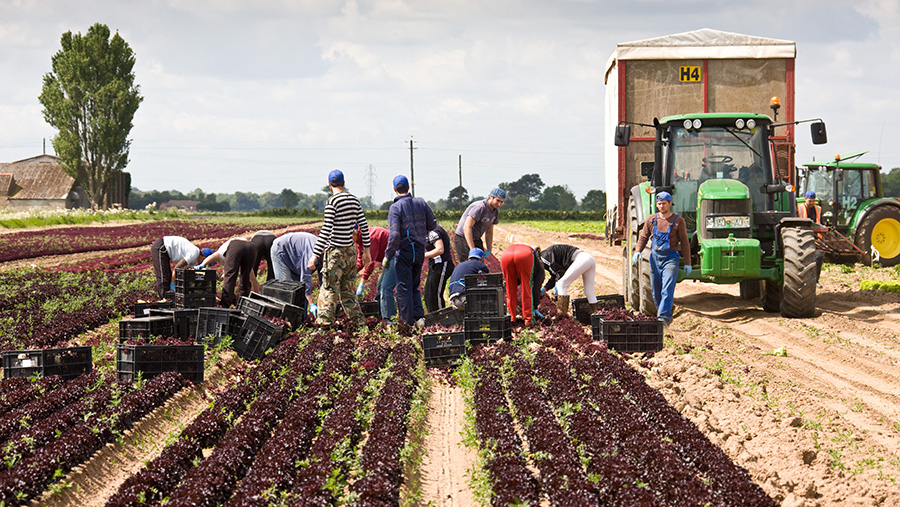Immigration rules risk further exploitation of farmworkers, research finds
 © Tim Scrivener
© Tim Scrivener Farm businesses fear new post-Brexit immigration rules will cause a shortage in seasonal labour and lead to more workers being exploited in food processing and farming.
Research teams from De Montfort University (DMU) Leicester have been speaking to business leaders in the edible horticulture and agricultural industries, which includes fresh food produce, which rely heavily on seasonal labour to harvest crops.
Many fruit and vegetable farms have expressed concerns about possible labour shortages this year due to the new immigration points-based system, which allows only skilled workers to settle in the UK.
See also: Shocking extent of modern slavery in agriculture revealed
They say new immigration rules designed to limit numbers of low-skilled workers coming to the UK will leave them short of staff to pick fruit and crops.
The government has expanded its Seasonal Workers Pilot for 2021, with 30,000 visas available for people who want to come and work on UK farms.
It has also announced that it will build on its Pick for Britain campaign to promote the recruitment of domestic seasonal workers. The government has suggested that unemployed Brits and students could also make up part of the shortfall.
But the NFU says more than 70,000 seasonal workers will still be needed to fill the gaps.
Because of the transient and seasonal nature of the work, it has been hard for the farming industry to attract staff from the UK and it has relied heavily on EU migrant workers for the past 20 years.
And experts in modern slavery believe illegal gangmasters could take advantage of the labour shortfall by exploiting more workers.
Many companies are still unclear how the Home Office’s points-based immigration system will work in practice, and they have criticised a lack of information from the government about what processes and checks would be needed to meet requirements.
Small businesses ‘at risk’
Researchers say many smaller businesses could close as they are unable to afford to implement legal alternatives to unskilled labour suggested by the government, such as robots and large-scale automation.
One company told the team: “It will create the opportunities for exploitation, and put farmers and growers into a difficult position and at risk of immigration enforcement action.”
Another said: “It will be a good environment for bad things to happen.”
Dave Walsh, professor of criminal investigation at DMU, said: “Farmers and growers may be faced with a very stark choice of not picking their crops or using workers who do not have the right to work to pick them.
“Companies reported that this will allow criminals to prey on vulnerability and increase the risk of exploitation”.
The research team will continue the project until June. A report will then be created, detailing the project’s findings and recommendations to policymakers to reduce risks of labour exploitation.
